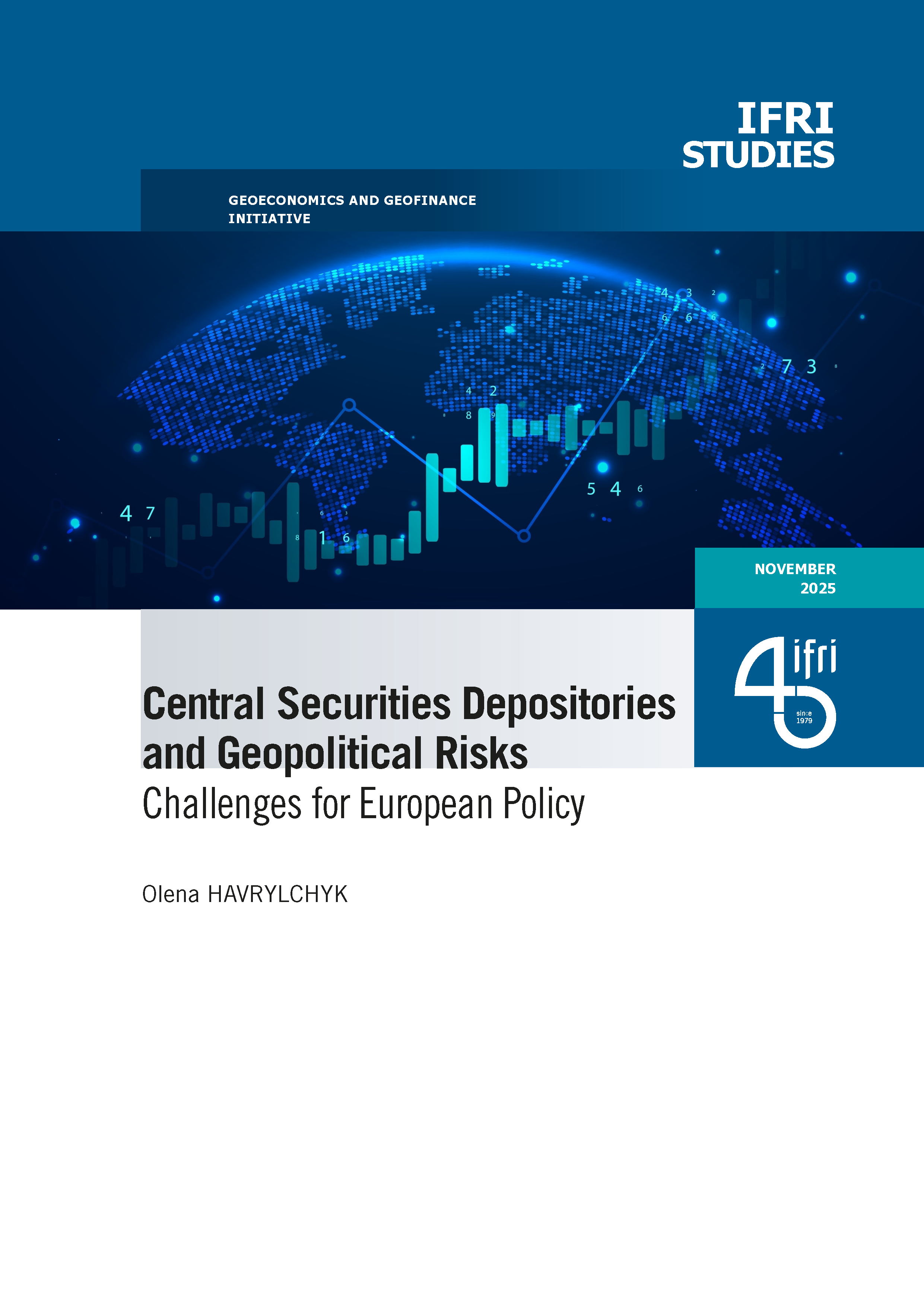Central Securities Depositories and Geopolitical Risks: Challenges for European Policy

Central Securities Depositories (CSDs) form the backbone of financial market infrastructure by registering securities, settling trades, distributing cash flows, and managing collateral. While often regarded as mere financial “plumbing,” they in fact underpin strategic objectives such as advancing the Savings and Investment Union, curbing tax evasion, and reinforcing Europe’s geopolitical stance.

The academic and policy debate on CSDs is fragmented across three strands of literature that rarely intersect. From a regulatory perspective, concerns focus on the persistent fragmentation of the EU CSD market. From a political economy perspective, omnibus accounts and opaque custody chains are criticized for facilitating tax evasion. From a geopolitical perspective, Euroclear – the EU’s largest International CSD – has been thrust into the spotlight for its central role in immobilizing and freezing Russian assets after the 2022 invasion of Ukraine. This Paper brings these three strands of literature together to identify and analyze the key challenges facing European policymakers.
Olena Havrylchyk is Professor of Economics at the University Paris 1 Panthéon-Sorbonne, where she is the founding Director of the Master 2 Finance, Technology & Data. Her research focuses on the economics of banking, the role of technology in financial intermediation, and sustainable finance.

Available in:
ISBN / ISSN
Share
Download the full analysis
This page contains only a summary of our work. If you would like to have access to all the information from our research on the subject, you can download the full version in PDF format.
Central Securities Depositories and Geopolitical Risks: Challenges for European Policy
Related centers and programs
Discover our other research centers and programsFind out more
Discover all our analyses
New Cold War? What New Cold War? Confronting the Geoeconomic Fragmentation Narrative with the Data
It has become widely accepted that the world economy should be seen as increasingly shaped by forces of fragmentation, resulting from geopolitical tensions. This article takes another look at this narrative, using international trade data. While an aggregate analysis is consistent with a new Cold War narrative, whereby international trade is increasingly seen as split into two blocs, this is only a mix of very different outcomes. Far from being a widespread trend, geoeconomic fragmentation of trade flows is only significant in “hotspots”: Russia's foreign trade and China-US bilateral exchanges, and the impact is massive in these cases. Outside these “hotspots”, there is no tangible sign that geopolitical tensions have been shaping international trade patterns in terms of blocs, nor is there any hint of a trend toward nearshoring – to the contrary, in fact.
Manufacturing Risk: Geopolitical Doxa and the Corporate World
The evolving power dynamics between the United States, China, and Russia are creating new geopolitical realities that businesses can no longer evade. Geopolitical risk has become unavoidable, yet many companies remain unprepared to navigate its complexities. Corporate leaders can no longer afford to overlook its implications.
Trump's Trade War: What Answers for the European Union?
The announcement, on April 2, 2025, of “reciprocal tariffs” by the United States has opened a sequence of profound break with decades of established trade policy practices, where the administration behaviour has been marked by dogmatic blindness, amateurism, and self-serving interests.
How Geopolitical Tensions Reshape Trade Patterns: Geoeconomic Fragmentation, or China’s Big Manufacturing Push?
A data-based analysis shows that widespread geoeconomic fragmentation of world trade is not visible, at least so far. In contrast, the geopolitically-motivated challenges to international coordination are striking, notably in relation with China's surging surplus in manufactured goods trade.









